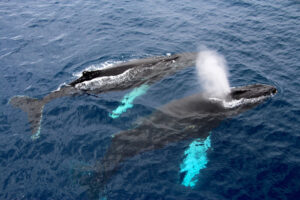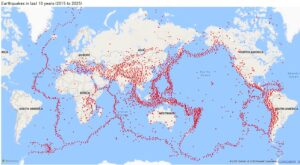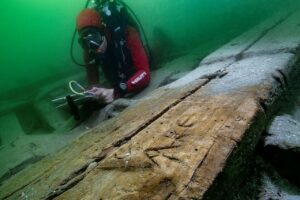Gabor Rakonczay, 39, leaves Gran Canaria, off northwest Africa, on January 10 to paddleboard across the Atlantic Ocean. The Hungarian athlete has already paddled across the Atlantic in a larger craft and was the first Hungarian to reach the South Pole, on a guided 44-day trek. This will be his second paddleboarding attempt.

Photo: @Rakonczay Expedíciók
He initially tried to SUP the 5,200km to Antigua last January, but after three days he turned back because “water had penetrated the hull…I couldn’t take that risk.”
He estimates that this second attempt will take 60 to 70 days, paddling for 12 for 16 hours a day in the special cargo-carrying SUP he has built.
Although Rakonczay claims this is a first, ExWeb reader Joseph Ross points out that Chris Bertish already paddled by SUP across the Atlantic in 2017.
Over his career, Rakonczay has built a few of his own ocean-crossing vessels and has always wondered about the most basic craft for such a crossing. He thinks that an SUP is about as minimal as you can get. He describes his as “a large surfboard,” five metres long by one-and-a-half metres wide, with a keel and rudder for stability, but no superstructure — nothing enclosed where he can shelter in bad weather or for sleeping.
Storage compartments, accessible from the deck, hold his food and equipment. He has enough food for 70 days, plus a one-month reserve supply. He will use a handheld desalinator for drinking water.

Photo: @Rakonczay Expedíciók
The bare-bones SUP forces Racknoczay to be strict about what he carries. No luxuries, although several emergency backups, including two transponders, Iridium and Inmarsat satellite phones, EPIRB, PLB, and a liferaft. Sleeping, he admits, will his biggest challenge, since he will just be lying on the deck in the open, tied down.

Photo: @Rakonczay Expedíciók
He originally planned to do this last year, but like so many of us, he had to defer his plans because of COVID-19. He has now been training for over 18 months and has had to be creative with his workouts because of lockdown restrictions and the fact that Hungary has no coast. So he has taken part in activities such as a 24-hour race where he ran 216km. (The one-day record is 303km.) The race was “very similar to ocean rowing in its monotony,” Rakonczay concluded.
You can track his journey on Yellowbrick and on InReach.






